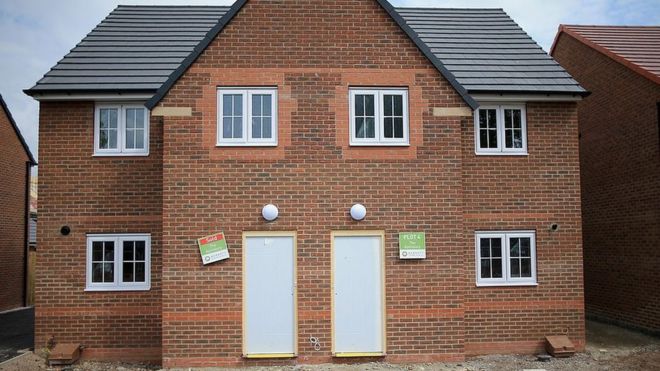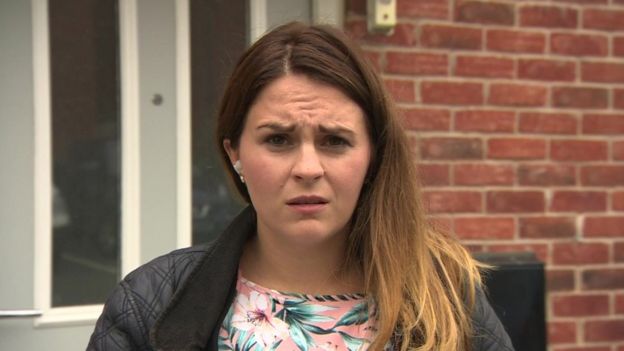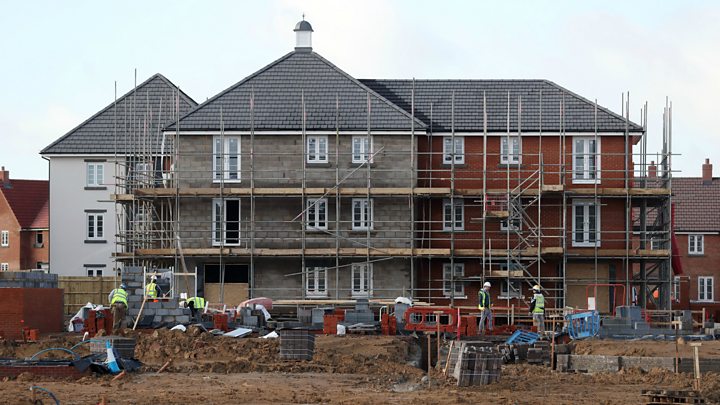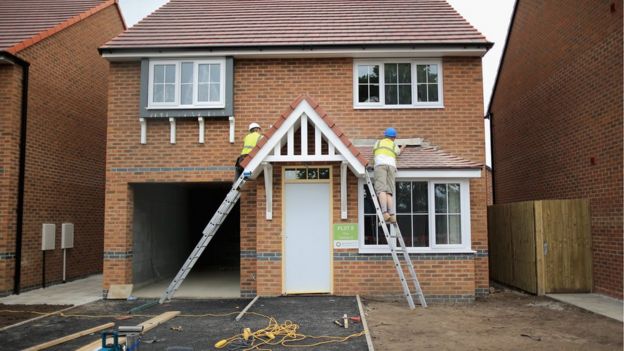
“Unfair charges” levied on buyers of new-build houses could be banned in England under a proposed crackdown.
Leaseholds on new-build houses would be outlawed, while ground rents could be dramatically reduced, under government plans subject to public consultation.
Ground rents can double every decade, crippling home owners and in some cases making a property impossible to sell.
“Enough is enough. These practices are unjust, unnecessary and need to stop,” said Communities Secretary Sajid Javid.
The proposals, which are subject to an eight-week consultation, apply only to England.
Mr Javid said that there were 1.2 million cases of houses on leasehold, and the situation of escalating costs was one example of a “broken housing market”.
He said the proposals would affect future sales, but those already facing difficulties would generally need to seek redress from the housebuilder or, if the situation was not made clear at the point of sale, their solicitor.
“Builders and developers should be seeing what they can do to right some of the wrongs of the past,” he told the BBC’s Today programme.
The leasehold system has existed for a long time in England and Wales, especially in blocks of flats.
Leaseholders own their homes for a fixed period of time, on a “lease” to a freeholder, but many have long leases, for example for many decades, and experience no problems.
Traditionally houses have nearly always been sold as freehold properties, meaning the buyer owns the building and land it is built on outright.
But the trend for new-build houses being sold as leasehold has accelerated in recent years.
Seller’s story: Buyer dropped out

Clair Scott says she bought her house as a leasehold and now cannot sell it because the ground rent is set to increase dramatically.
One potential buyer dropped out after their solicitor advised them not to go through with the sale because of the high ground rent.
“It doubles every 10 years starting in 2020, so it gets to £10,000 a year by 2060,” Ms Scott said.
Proportion of new-build houses sold as leaseholds since 2010, by postcode district
Areas with more transactions shown as larger circles. Tap or click for more details

Source: Land Registry
‘Onerous’ terms
The government said the trend of new leasehold houses was a particular problem in the north-west of England.
Leaseholders typically pay ground rent to the freeholder, but can be caught out by clauses allowing for dramatic increases in these fees, which come on top of management charges for the upkeep of communal areas.
The Department for Communities and Local Government (DCLG) said the terms of some leases “were becoming increasingly onerous”.
It cited examples of:
- A homeowner being charged £1,500 by the freeholding company to make a small change to their family home
- A family home which is now impossible to sell because the ground rent is expected to hit £10,000 a year by 2060
- A homeowner who was told buying the lease would cost £2,000 but the bill came to £40,000
MPs have described the situation as a “national scandal” and the “PPI of the housebuilding industry”.
The DCLG said its proposals aimed to make future leases fairer by reducing ground rents so they “relate to real costs incurred”.
About 21% of private housing in England is owned by leaseholders, with 30% of those properties houses rather than flats, according to figures from the Department for Communities and Local Government.

‘Unfair’ service charges – what can you do?
Mark Loveday, a barrister at Tanfield Chambers and a member of the Association of Leasehold Enfranchisement Practitioners (ALEP) says there is a considerable amount of legislation to protect people against unfair service charges.
“If a leaseholder is paying excessive service charges, they may issue court proceedings or complain to the Royal Institution of Chartered Surveyors (RICS). Alternatively, leaseholders can contact members of ALEP who will offer expert advice on the issue. There is also the government-funded Leasehold Advisory Service (LEASE) which provides free advice to flat owners,” he adds.
“However, the majority of leaseholders will take their disputes to tribunals. These are low-cost, low-fee specialist bodies which deal with the vast majority of service charge disputes.
“Tribunals have the jurisdiction to do various things such as determine service charges and enforce restrictions or allow a majority of leaseholders to take over the management of a building. Indeed, figures between 2004 and 2013 show that service charge and management claims in tribunals more than doubled in that period.”
Security
The Conveyancing Association trade body said it was researching ways to find a better method of tenure for properties with shared amenities.
The House Builders Federation said: “The industry is committed to working with all parties to ensure that the terms on which leasehold homes are sold are fair and work for the homeowner.
“Buying and selling apartments on a leasehold basis is a long accepted form of ownership and provides security for people with communal facilities. There are instances where houses need to be sold on a leasehold basis, for instance where land has been acquired from local authorities, other public bodies or the Crown on a leasehold basis.”
What is a leasehold?

- Someone who owns a property outright, including the land it is built on, is a freeholder.
- Most houses are freehold but some might be leasehold – usually through shared-ownership schemes.
- With a leasehold, the person owns the property for the length of their lease agreement with the freeholder.
- Leaseholders have to pay their freeholders ground rent and other fees in order to make changes to their homes.
- When the lease ends, ownership returns to the freeholder unless the person can extend the lease.
- Some wish to buy their freeholds to save themselves these costs.
Source: The Money Advice Service


